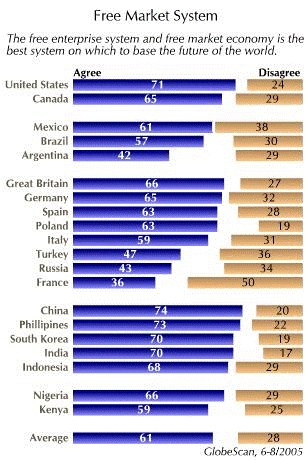The unions can win only by countering the propaganda that this strike is about a "conflit sectoriel contre l'intérêt général" [sectoral conflict against the general interest] in the words of Stéphane Rozès of the CSA polling group (Rémi Barroux, "Les syndicats ont peur de perdre la bataille de l'opinion," Le Monde, 14 November 2007). If recent polls are to be believed, the unions are having trouble doing so: 55% of the French judge the mobilization against the reform of the special pension plans as "not justified," according to a BVA survey released on Tuesday. At the time of the 18 October strike on the same issue, 53% shared this judgment. Libération (13 November) reports that 59% are "on the side of Nicolas Sarkozy and the government" and 35% "on the side of strikers and demonstrators." That is despite the fact that "the opinion remains skeptical on the economic policy of the government," 79% judging that Nicolas Sarkozy is "a failure" on the issue of purchasing power and 59% saying the same about his policy on economic growth (Barroux, 14 November 2007).
That may be about to change.
The danger for Sarkozy is the "aggregation of diverse movements" against his overal agenda, as Rozès notes (Rémi Barroux, "Stéphane Rozès, directeur général de CSA: 'Le danger pour Sarkozy est l'agrégation de mouvements,'" Le Monde, 12 November 2007). Just such a convergence is likely to develop this month. Students, who are fighting their own battle against privatization of education as well, have threatened to block train stations in solidarity with striking workers, and civil servants will go on strike on 20 November.
1 The last bastion of socialism in terms of working people's militancy and public sentiment, not of political economy, of course:

SOURCE: GlobeScan and PIPA, "20 Nation Poll Finds Strong Global Consensus: Support for Free Market System, But also More Regulation of Large Companies," 11 January 2006




No comments:
Post a Comment